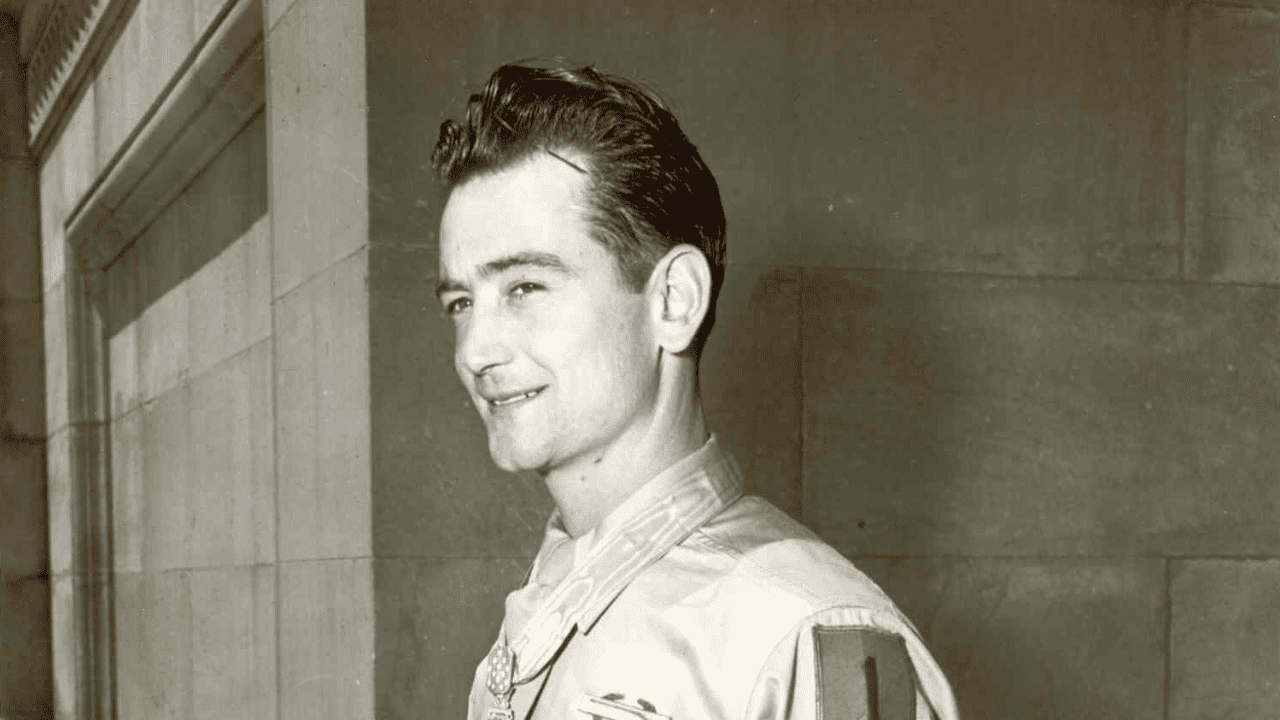
Ismael Lopez and Claudia Linares
Lopez was shot and killed in Southaven after police came to his home by mistake in the middle of the night. On Thursday, a jury decided in favor of the officers involved, declining to find them civilly liable for Lopez’s death.
Shortly after midnight, in the early morning hours of July 24, 2017, Southaven resident Ismael Lopez was at home asleep next to his wife.
A commotion outside of his small mobile home at 5881 Surrey Lane roused him from bed. Moments later, three bullets ripped through his front door. One of the shots caught Ismael in the back of the head and dropped him where he stood. Ismael died.
What happened in the moments immediately preceding his death has been the subject of prolonged dispute between attorneys for Lopez’s widow, Claudia Linares, and the City of Southaven.
The Southaven police officers involved in the death of Lopez say he came to his door with a gun, an act which, in and of itself, is not illegal in Mississippi.
Ismael’s family and attorneys disagreed with the officers’ account of events. There were no body cameras to record what happened.
What is undisputed is that Ismael was not suspected of, or wanted for, any crime. There were no active warants. The police simply went to the wrong house, in the middle of the night, in search of a different person.
On Thursday, more than six years after the incident, a jury found that the officers involved were not civilly liable for the death of Lopez. The civil verdict comes years after a decision not to criminally charge the officers involved.
A Tragic Sequence of Events
Samuel Pearman lived across the street from Lopez at 5878 Surrey Lane. On the evening of July 23, 2017, a complaint was filed against Pearman for domestic assault. The woman who filed the complaint alleged that Pearman had choked her in front of her child at a Citgo gas station located in Tate County.
Pearman left the scene of the alleged incident and traveled north to his home in DeSoto County. A sheriff’s deputy in Tate County, Stanley Perry, contacted the Southaven Police Department about the incident. Southaven patrol officers Zachary Durden and Samuel Maze, along with Sergeant Thomas Jones, proceeded to Surrey Lane to find Pearman around midnight.
The woman who filed the complaint against Pearman indicated that she told law enforcement that the home they were looking for had a giant “P” hanging on it for “Pearman.” She was not present in the home and not in any immediate danger.
Instead of locating the Pearman home, officers approached Lopez’s property by mistake that night with guns drawn. According to their account, Durden climbed some stairs onto a wooden porch, knocked on the door, and then exited the porch back to ground level.
In his account of the incident in 2018, then-District Attorney John Champion noted a belief that the officers did not announce themselves as police. According to the officers, a porch light went out, the door opened, and a pit bull shot out of the home aggressively toward Officer Maze. Maze fired a shot at the animal.
Officer Durden said that as the dog was coming toward Maze, he noticed a rifle pointing at him from a crack in the door and gave a command to drop the weapon. When Maze fired at the dog, Durden began firing into the mobile home. The written accounts of the incident leave the impression of a quick and harried sequence of events.
Durden fired a total of four shots. The first lodged in a wood railing of the porch. Shots 2-4 went through the front door of the Lopez home. A Mississippi Bureau of Investigation report indicated that the door was likely 1 1/4 inches open when the second shot was fired, and 3 inches open when the third shot was fired. The investigation report could not say whether the door was open or closed when the fourth fatal shot was fired.
The bullet that struck Lopez entered at the base of his skull and moved from the back to front of his head. Lopez’s body was found more than six feet from the door. These pieces of evidence support the idea he was moving away from the door with his back to the shots when hit.
After the shooting, officers said they could hear Lopez struggling to breathe “laboriously,” describing the noise as snore-like. Lopez was placed in handcuffs. He died in the prone position with his arms cuffed behind his back at the scene.
Lopez’s wife, Linares, was escorted outside and also placed in handcuffs in a move that was described as being for her “protection.”
A .22 rifle was found by investigators laying on a loveseat near the door. The placement of the rifle suggested that if he had been holding it, Lopez laid it down before moving away from the door.
Neither Lopez’s fingerprints or DNA were found on the rifle. It was also positioned six feet away from where Lopez’s body was found. There is no allegation or evidence that Lopez fired any shots at the officers.
In the ensuing investigation that night, police identified the actual house of Samuel Pearman, the domestic violence suspect, across the street and spoke to Pearman. He was not arrested that night, but was allowed to return to his home.
It is not hard to imagine that Lopez’s dog panicked officer Maze, who fired at it, and that shot panicked Durden, who began firing at Lopez.
The facts spelled out here are largely pulled from the Mississippi Bureau of Investigation’s investigative file on the case.
Officers Vindicated?
In the months following Lopez’s death, Southaven Mayor Darren Musselwhite defended his officers. He said the officers had been “persecuted” and that the police department would not be making any changes in its operating procedures, because officers had acted appropriately.
He repeated a similar line in the wake of the jury’s decision.
“This verdict proves what we’ve believed to be correct since day one as our officers responded appropriately considering the circumstance of being threatened with deadly force,” Musselwhite said. “We’ve stood behind them during the last six years for this very reason and, for their sake, are glad this trial is over.”
The City at one point argued that Linares should not be allowed to proceed with the lawsuit because Lopez was an undocumented immigrant and not entitled to the protections of the U.S. Constitution. The Court roundly rejected this argument and the case ultimately proceeded to trial.
Notably, there is a gap between not being held criminally, or even civilly liable, and doing nothing wrong. A Fourth Amendment claim against law enforcement is difficult to sustain because of protections built into the law for government workers.
What’s more, the jury could have believed the officers were negligent and still found that their response was justified because of what is called “an intervening and superseding cause”–in this case, the allegation that Lopez appeared with a gun and did not respond to a command to put it down.
As noted above, there is physical evidence that even if Lopez had held the rifle found at the scene, he did in fact put it down before being shot. It was laying on a love seat six feet from his body.
Lessons Still to Be Learned
What is clear is that had the officers waited to arrest Pearman during daylight hours instead of trying to pull off a midnight raid, Ismael Lopez would be alive. It plainly was not imperative to arrest Pearman on the night of July 24th, since after identifying him, the officers declined to do so.
The woman who had complained was not present at the home and was not in further danger. Pearman was arrested days later under a signed arrest warrant.
What unfolded on Surrey Lane is further evidence of the danger to both officers and citizens of late night maneuvers, and the wisdom of not forcing those nighttime encounters when there is not an emergency basis to do so.
More simply still, had the officers gone to the right house, Ismael Lopez would be alive.
Even once at the wrong residence, had they announced themselves as police, or not panicked and fired a shot when the dog came out of the house, Ismael Lopez might be alive.
When Officer Durden fired three shots through a door into a dark home, he did not know what was behind the door. A child’s slumber party could have been occurring behind those walls for all he knew.
It’s hard to imagine the discharge of the weapon in these circumstances was consistent with training and not the consequence of sheer adrenaline having heard his fellow officer fire a shot at the dog.
Finally, had the officers been wearing body cameras, we might be able to confirm how the events unfolded. Ismael Lopez is, after all, not here to tell his side of the story.
One would like to think that even in legal victory, Southaven and its leadership would be willing to engage in this kind of introspection–that it would put in place safeguards to reduce the chance of an innocent person being put in the position Lopez found himself in on the night of July 24th.
Even if poor consolation, working to ensure that something like this does not happen again would mean Ismael did not die in complete and total vain.











